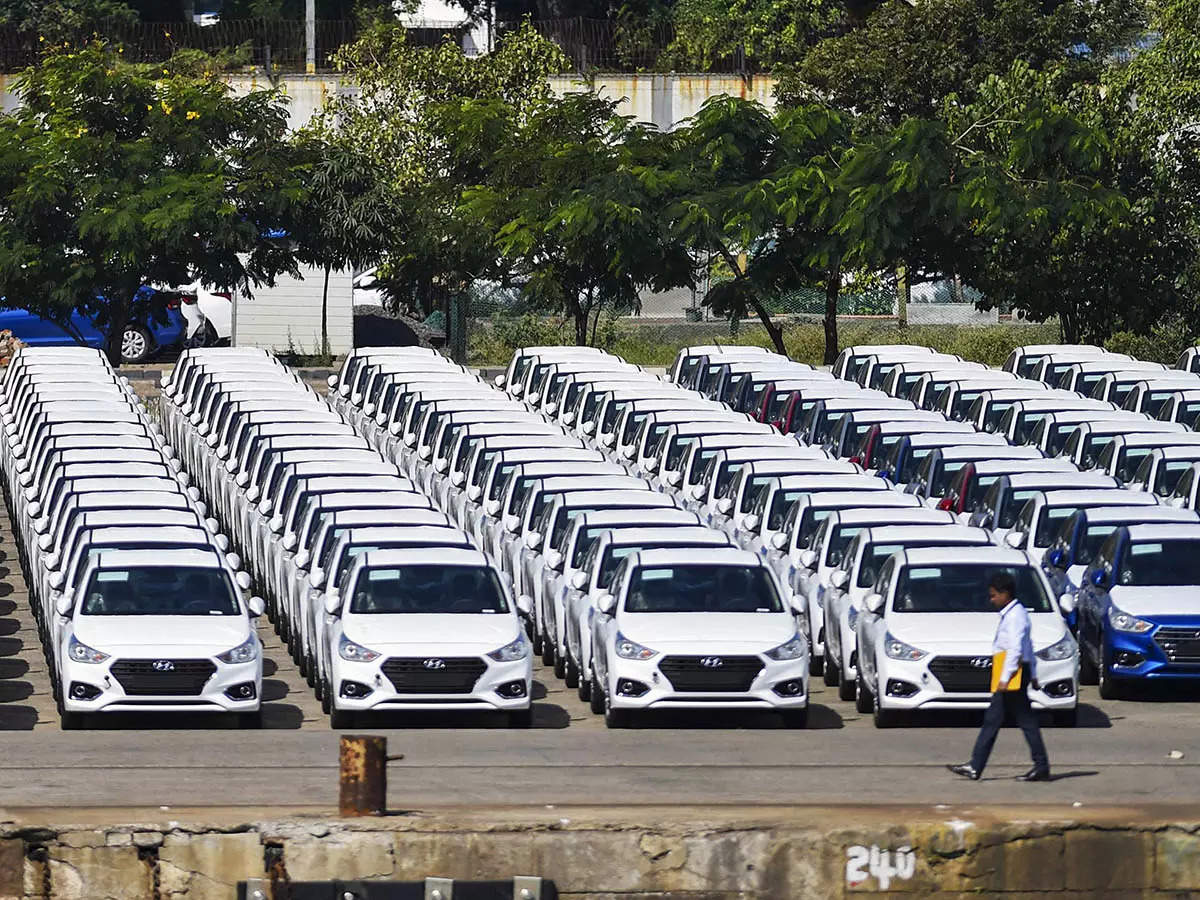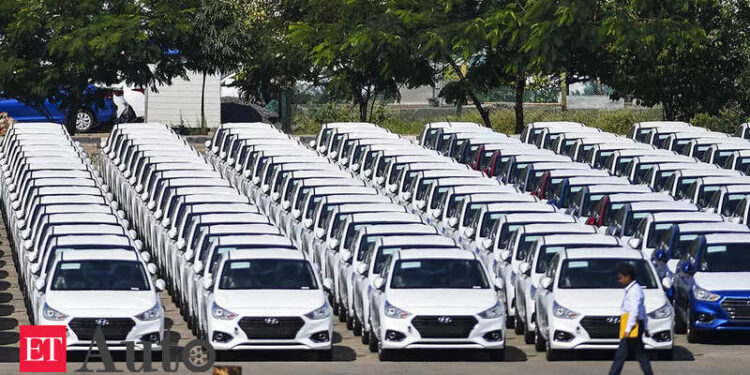
New Delhi: Halfway through FY22, the Indian automotive industry is yet to come out of the woods. The industry is weighed down by the rise in input costs and the persisting semiconductor shortage. The gap between demand and supply widened and it was a sellers’ market in September.
Going forward, a positive recovery from the second Covid wave and hopes of a fulfilled festive season is setting the momentum for sales in general. Auto companies in India report their dispatch from factories to dealers as their monthly wholesale figures.
The following is a segment-wise report of vehicle sales in September 2021.
Passenger Vehicles
Maruti Suzuki India Ltd (MSIL) had a major hit due to the chip shortage and witnessed a de-growth in its domestic sales last month, across the segments. However, exports for the company rose 124% in September on a year-on-year basis.
The mini passenger vehicles Alto and S-Presso clocked 14,936 unit sales in September 2021, compared to 27,246 units in September 2020. Compact passenger vehicles including WagonR, Swift, Celerio, Ignis, Baleno, Dzire, and Tour S logged 20,891 units in the month under review, against 84,213 units in September last year.
“Sales volume of the company in September 2021 was adversely impacted due to shortage of electronic components. The company took all possible measures to limit the adverse impact”, the company said.
The carmaker also said it is expecting total vehicle production in the festive month of October at two of its plants to be only around 60% of normal levels due to a global chip shortage.
Most OEMs have also announced price hikes on their model range due to the rise in input costs.
Auto major Tata Motors which reported a growth of 21% said that this growth has come on the back of demand recovery in the industry post the Covid second wave. The market leader in the EV segment also stated that the company for the second month in succession crossed the 1,000 unit milestone for EVs to register its highest ever monthly and quarterly sales of 1,078 units and 2,704 units respectively.
Shailesh Chandra, president, passenger vehicles business unit, Tata Motors Ltd, said, “EV sales recorded nearly a three-fold growth with the rising acceptance and popularity of the Nexon EV and Tigor EV. Looking ahead, the demand for cars and SUVs is expected to remain strong in the forthcoming festive season; however, the supply situation for electronic components may continue to witness challenging times.”
Veejay Nakra, chief executive officer, automotive division, M&M Ltd, “The challenges around the supply of semiconductors continue to pose difficulties for the auto industry globally. We have taken several steps to mitigate the effect and are working towards managing the situation as best as possible. We have maintained our growth momentum in exports with 61% increase.”
| Domestic Sales | September 2021 | September 2020 | % change |
| Maruti Suzuki | 63,111 | 147,912 | -57 |
| Hyundai | 33,087 | 50,313 | -34 |
| Tata Motors | 25,730 | 21,199 | 21 |
| Mahindra & Mahindra | 13,134 | 14,857 | -12 |
| Kia India | 14,441 | 18,676 | -23 |
| Toyota Kirloskar Motor | 9,284 | 8,116 | 14 |
| Honda Cars | 6,765 | 10,199 | -34 |
| Nissan India | 2,816 | 780 | 261 |
| MG Motor | 3,241 | 2,537 | 28 |
| Skoda Auto | 3,027 | 1,312 | 131 |
Kia India sold 4,454 units of Sonet, 9,583 units of Seltos, and 404 units of Carnival last month to dealers. Hardeep Singh Brar, Vice President and Head of Sales and Marketing, Kia India said the disruption in the supply chain has put a brake on the improving industry sentiment last month.
“As the festive period approaches, we are hopeful to see some improvement in semiconductor procurement. For the time being, we are taking all the measures to optimise the production and keep the waiting period of our vehicles in check,” he said.
Rajesh Goel, senior vice president and director-marketing and sales, Honda Cars India Ltd, said, “On demand side, there is good momentum in the market with improved buying sentiment. However, the supply chain hurdles including the widespread chip shortage has been a big challenge right now for the industry, which impacted our production volume and dispatches during last month.”
Nissan India, which is back in the game with the launch of its Magnite SUV last December said that it is receiving strong bookings ahead of the festive season.
Rakesh Srivastava, managing director, Nissan Motor India Ltd, said that the challenge has been on the supply side with the shortage of semiconductors on which the company is working with the supply chain partners.
Two-wheelers
While OEMs witnessed a growth on a sequential basis, on a year-on-year basis, the segment was mostly in the red during September 2021.
India’s largest two-wheeler maker Hero MotoCorp said the growth in volumes on a sequential basis indicates a gradual recovery in the economy.
“Heading into the peak festive season, the company remains optimistic about the demand over the coming months. Normal monsoon and the encouraging farm activity is likely to contribute towards positive customer sentiments. Increased pace of vaccination drives and the preference for personal mobility is also expected to lead to a swift revival in sales,” it said.
While the domestic sales reported a degrowth, exports for the company grew 35% to 24,884 units as against 18,425 units in September 2020.
Yadvinder Singh Guleria, Director – Sales & Marketing, Honda Motorcycle & Scooter India (HMSI) said, “We are gaining back the momentum with each passing month witnessing a rise in customer enquiries. The coming few months will be decisive in determining the growth forecast with the year’s most awaited time of festivals just around the corner.”
Satoshi Uchida, managing director, Suzuki Motorcycles, said, “We continue to experience a very strong demand both from the domestic and overseas markets. However, supply chain constraints being experienced in the country and across the globe have impacted our efforts to cater to the heightened demand.”
Commercial vehicles
Last year, this segment was the worst hit while reeling under the impact of a sharp drop in volumes due to Covid fear of public transport, economic uncertainty and revision in load carrying norms. However, the domestic sales have improved on a year-on-year basis.
Girish Wagh, executive director, Tata Motors Lt, said, “Post the second COVID wave, markets are witnessing gradual demand recovery across most segments led by M&HCVs with improving fleet utilization levels, higher number of road construction projects awarded and improving cement consumption.”
“Semiconductor shortage continues to impact the auto industry globally. The impact of supply shortage due to restrictions in East Asia continued in September, leading to moderation of production and offtake volumes. The situation is fluid and we continue to work to mitigate the impact on our customer orders through an agile, multi-pronged approach,” he said.
| Domestic Sales | September 2021 | September 2020 | % change |
| Tata Motors | 30,258 | 23,211 | 30 |
| TVS Motor | 14,645 | 14,360 | 1.9 |
| Mahindra & Mahindra | 12,449 | 19,494 | -36 |
| Bajaj Auto | 18,403 | 9,231 | 99 |
| Ashok Leyland | 8,787 | 7,835 | 12 |
| VECV | 5,282 | 2,996 | 76 |
Tractors
Hemant Sikka, president – farm equipment sector, Mahindra & Mahindra Ltd, said, “Strong revival in rainfall during September brought cheers to the farming community, with the entire rainfall deficit wiped off by end of September and monsoon achieving normal levels. This is back-to-back normal or above normal monsoon for the third year. Reservoir levels have improved and excess rainfall in September will lead to high moisture content in the soil, leading to strong Rabi sowing.”
“With initial crop production estimates indicating the highest ever Kharif Crop, coupled with the upcoming festive season, we are optimistic of a strong demand in the coming months,” he said.
| Domestic Sales | September 2021 | September 2020 | % change |
| Mahindra & Mahindra | 39053 | 42361 | -8 |
| Sonalika | |||
| Escorts | 7,975 | 11,453 | -30 |
Escorts Agri Machinery said above normal rainfall in September has delayed harvesting in some parts of the country resulting in a two-to-four-week delay in the onset of the festive season demand.
However, with record monsoon activity in September, this year’s rainfall deficit has largely been recovered, which augurs well for the industry in the upcoming months, the company added.
“All other macroeconomic factors remain favourable. Inflation in various commodity prices continues to be an area of concern in the short term,” Escorts highlighted.
(This is a developing story. We will keep updating as the OEMs release their sales data.)
Also Read:

















